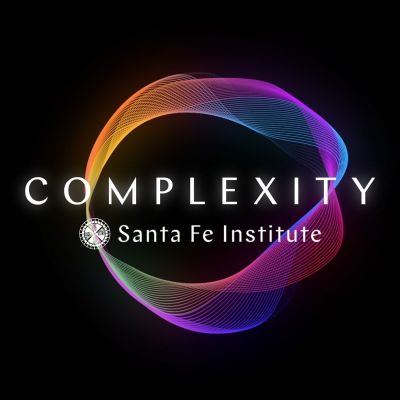Are there universal laws of life and can we find them? Is there a physics of society, of ecology, of evolution? Join us for six episodes of thought-provoking insights on the physics of life and its profound implications on our understanding of the universe. In this season of the Santa Fe Institute’s Complexity podcast’s relaunch, we talk to researchers who have been exploring these questions and more through the lens of complexity science. Subscribe now and be part of the exploration!
https://complexity.simplecast.com
Gesamtlänge aller Episoden: 4 days 12 hours 27 minutes
episode 63: Mark Ritchie on A New Thermodynamics of Biochemistry, Part 2
This week we conclude our two-part discussion with ecologist Mark Ritchie of Syracuse University on how he and his SFI collaborators are starting to rethink the intersections of thermodynamics and biology to better fit our scientific models to the patterns we observe in nature. Most of what we know about the enzymatic processes of plant and animal metabolisms comes from test tube experiments, not studies in the context of a living organism...
episode 62: Mark Ritchie on A New Thermodynamics of Biochemistry, Part 1
Deep inside your cells, the chemistry of life is hard at work to make the raw materials and channel the energy required for growth, maintenance, and reproduction. Few systems are as intricate or as mysterious. For this reason, how a cell does what it does remains a frontier for research — and, consequently, theory often grows unchecked by solid data...
episode 61: Andrea Wulf on The Invention of Nature, Part 2: Humboldt's Dangerous Idea
The 19th Century saw many transformations: the origins of ecology and modern climatology, new unifying theories of the living world, the first Big Science projects, revolutions in the Spanish colonies, new information systems for the storage and representation of data… Many of these can be traced back to the influence of one singular explorer, Alexander von Humboldt. Humboldt was one of the last true polymathic individuals in whom the sum of human knowledge could be seated...
episode 60: Andrea Wulf on The Invention of Nature, Part 1: Humboldt's Naturegemälde
When you hear the word “nature,” what comes to mind? Chances are, if you are listening to this in the 21st Century, the image is one of a vast, interconnected, living network — one in which you and your fellow human beings play a complicated part. And yet, this is a relatively recent way of thinking for the modern West. It takes a special kind of thinker — and a special kind of life — to find and recognize the patterns that connect different environments around the planet...
episode 59: Sidney Redner on Statistics and Everyday Life
Complexity is all around us: in the paths we walk through pathless woods, the strategies we use to park our cars, the dynamics of an elevator as it cycles up and down a building. Zoom out far enough and the phenomena of everyday existence start revealing hidden links, suggesting underlying universal patterns. At great theoretic heights, it all yields to statistical analysis: winning streaks and traffic jams, card games and elevators...
episode 58: Orit Peleg on the Collective Behavior of Honeybees & Fireflies
“More than the sum of its parts” is practically the slogan of systems thinking. One canonical example is a beehive: individually, a honeybee is not that clever, but together they can function like shapeshifting metamaterials or mesh networks — some of humankind’s most sophisticated innovations. Emergent collective behavior is common in the insect world — and not just among superstar collaborators like bees, ants, and termites...
episode 57: Jonas Dalege on The Physics of Attitudes & Beliefs
Human relationships are often described in the language of “chemistry” — does that make the beliefs and attitudes of individuals a kind of “physics”? It is, at least, a fascinating avenue of inquiry. In particular, the field of statistical mechanics offers potent tools for understanding how exactly people form their views and change their minds. From this perspective, everyone is a dynamic network of opinions and values, in a tense and ever-changing balance both with others and ourselves...
episode 56: J. Doyne Farmer on The Complexity Economics Revolution
Once upon a time at UC Santa Cruz, a group of renegade grad students started mixing physics with math and computers, determined to discover underlying patterns in the seeming-randomness of systems like the weather and roulette...
episode 55: James Evans on Social Computing and Diversity by Design
In the 21st Century, science is a team sport played by humans and computers, both. Social science in particular is in the midst of a transition from the qualitative study of small groups of people to the quantitative and computer-aided study of enormous data sets created by the interactions of machines and people...
episode 54: David Stork on AI Art History
Art history is a lot like archaeology — we here in the present day get artifacts and records, but the gaps between them are enormous, and the questions that they beg loom large. Historians need to be able to investigate and interpret, to unpack the meanings and the methods of a given work of art — but even for the best, the act of reconstruction is a trying test...
